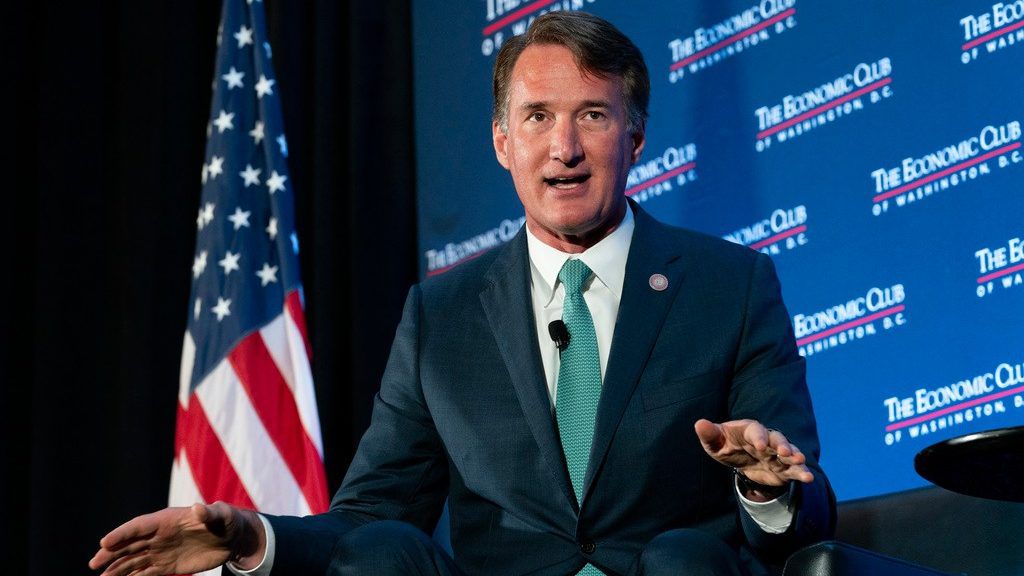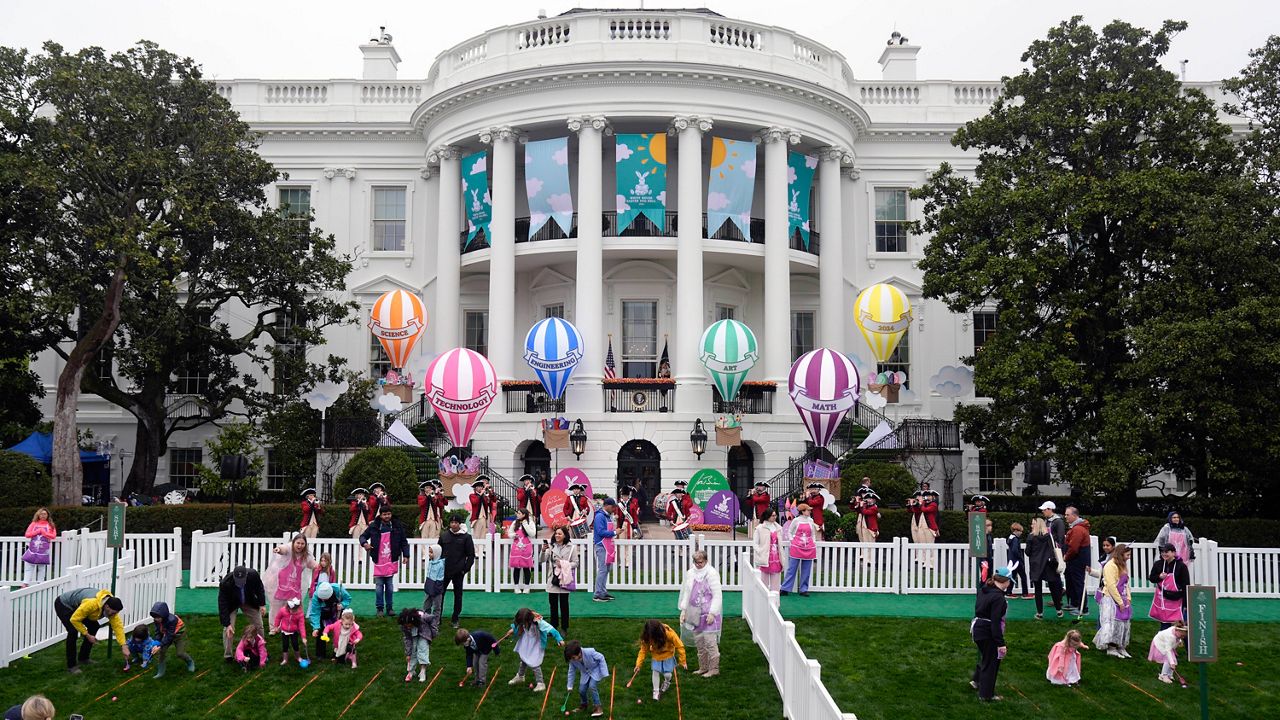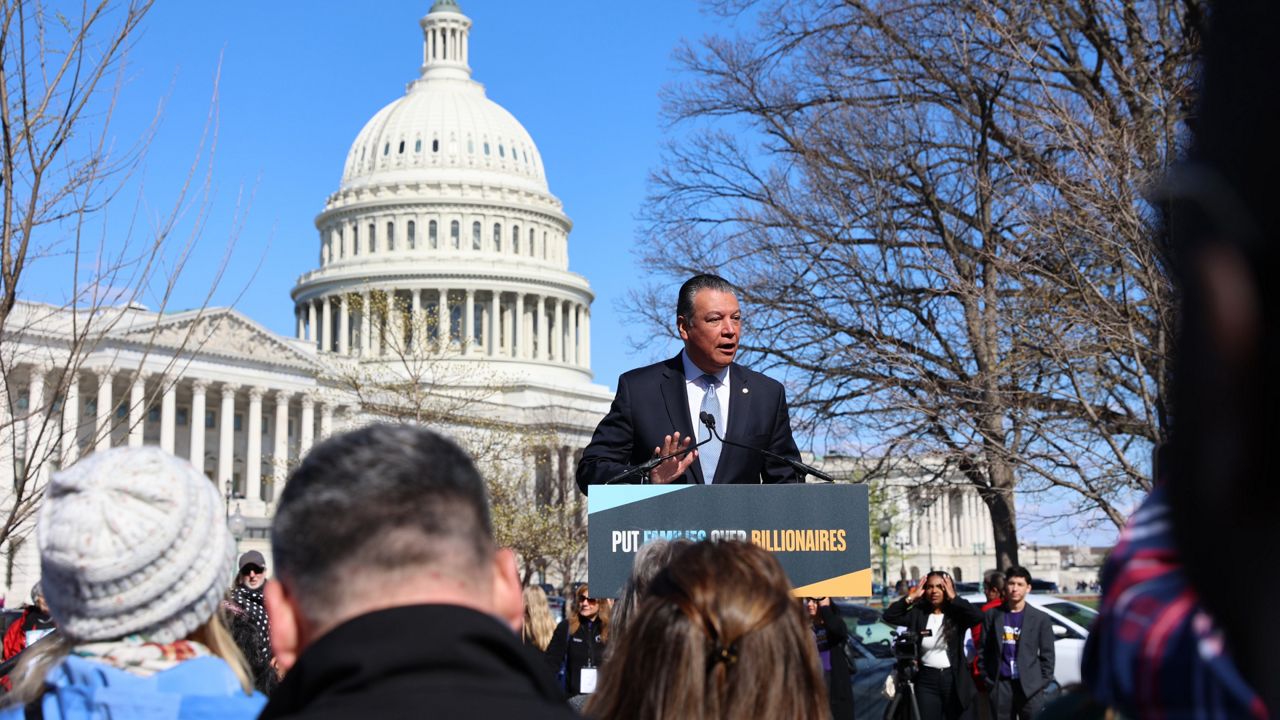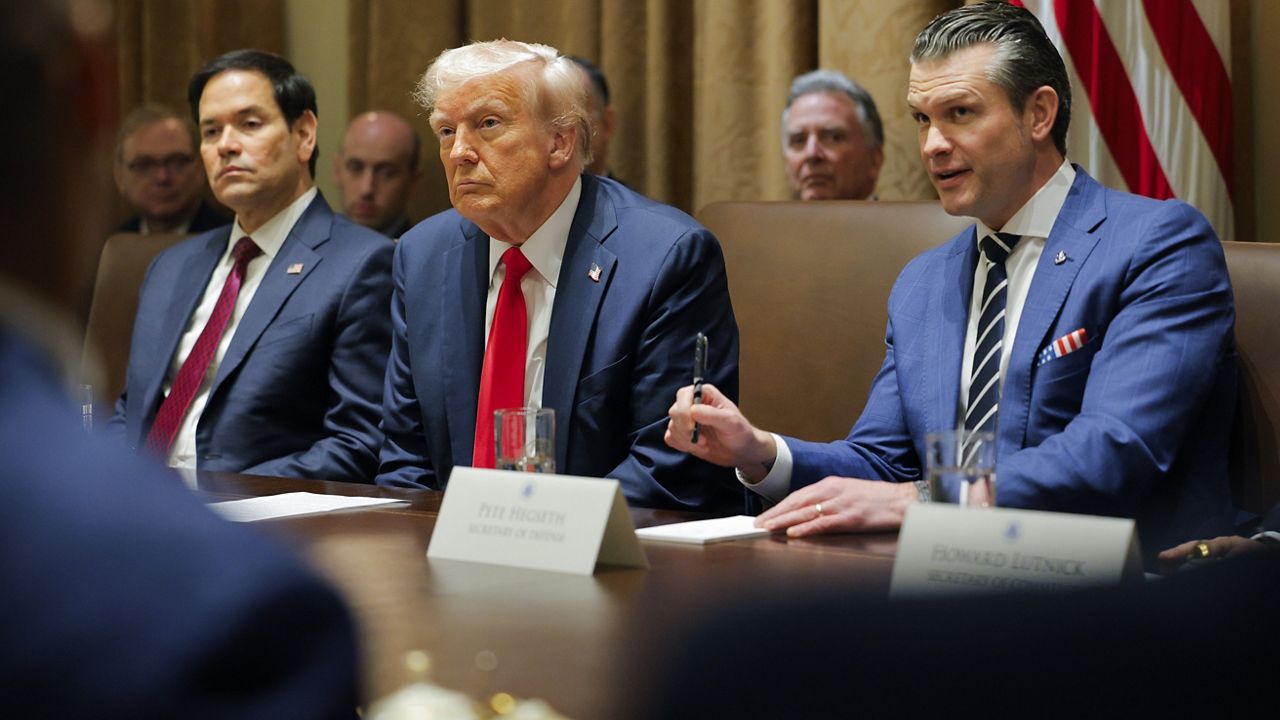The leader emeritus of the Democratic Party is making robocalls across a state he flipped blue in 2008. The commonwealth’s Republican governor is spending money hand over fist with whispers of rumored presidential ambitions growing.
Virginia is one of a handful of states that hold statewide elections in odd-numbered years — and the results of the election might be a bellwether for elections across the country in 2024.
Republicans swept all three of the executive races statewide and narrowly won the House of Delegates in 2021, but Democrats hung on to control of the state senate, stymying much of Gov. Glenn Youngkin’s agenda.
Just more than a dozen seats across the two houses of the Virginia General Assembly could shift the balance of power toward complete Republican legislative control. Democrats and abortion rights advocates worry that a GOP trifecta in the legislature and the Governor’s mansion could lead to the passage of laws limiting reproductive rights, and may tilt how Republicans across the country seek to deliver their platforms to voters — especially when it comes to abortion.
“I think if Republicans have a good night, that’s a message that you’ll hear from Republicans in other parts of the country,” said Kyle Kondik, the managing editor of Sabato’s Crystal Ball, a University of Virginia-published newsletter and website analyzing politics across the country. “If they don’t, I think it’ll reinforce the idea that Dems have an advantage on the abortion issue.”
Gov. Youngkin, Virginia’s top elected official, looms in the background of the race. Owing to Virginia law, Youngkin may only serve one four year term, which expires in 2026 — but winning a Republican trifecta in the state could boost his profile enough to potentially mount a late 2024 presidential bid.
To do so, Youngkin’s Spirit of Virginia PAC has spent heavily on the race, including a $1.4 million ad campaign on abortion issues. Youngkin has long advocated for a ban on abortions taking place after 15 weeks of gestation, with exceptions for rape, incest and the life of the pregnant person, which he seems to believe is the right angle to gain traction with moderate voters.
Republicans currently hold most power in Virginia, controlling the governor’s seat – as well as the lieutenant governor and attorney general – and the House of Delegates (48 GOP seats to 46 Democratic, with six vacancies). But Democrats hold the Virginia Senate (22 seats to 18), maintaining a bulwark against conservative policies; the Democratic-controlled senate has, most notably, turned back a repeal on a minimum wage increase and impeded Youngkin’s abortion ban proposals.
Democrats hope to expand that power to both chambers of the legislature, and feel they have a path to do so.
According to the Virginia Public Access Project, 16 races across the Old Dominion — and potentially even fewer, according to some analysts — are tabbed as potentially swinging the state.
“A Republican sweep would be an upset at this point. The state House feels like a close toss-up; Democrats probably have an edge in the senate, but I’d describe both chambers as competitive,” Kondik said. “But Youngkin needs both chambers to do what he wants to do.”
To do so in the senate, Republicans would have to win four of six senate races considered competitive by Sabato’s Crystal Ball to effectively hold control of the chamber (similar to the U.S. Senate, Virginia’s lieutenant governor holds the tie-breaking vote in his state’s senate). For the House, each side is projected to need six wins to get to a majority.
The races that strike Kondik as most interesting are those showing a touch of contrast between areas that voted for Biden in 2020 and their approach to 2021 Democratic governor candidate Terry McAuliffe.
The contest between GOP Sen. Siobhan Dunnavant versus Democratic Del. Schuyler VanValkenburg is one of the few senate races involving a Republican incumbent, made more interesting by the fact that Biden and Democratic governor candidate Terry McAuliffe both won voters in the district in 2020 and 2021, respectively. Meanwhile, the open seat contest between Republican Juan Pablo Segur and Democrat Russet Perry went heavily for Biden in 2020, and against McAuliffe by less than a percentage point the next year.
“Both of those races are a bit uphill for Republicans. I think they would need to win at least one of those really close and competitive races, but Democrats probably have the edge in the senate,” Kondik said.
Where Republicans have to be cautious is in reading too deeply into the 2021 results that sent Youngkin into Virginia’s Executive Mansion. Off-cycle elections are when the most motivated members of an electorate can make the most noise. “Gubernatorial races can look different than presidentials. But the thing is, 2021 was a good environment for Republicans and Youngkin won by less than a point. This year’s not as bad an environment for Democrats,” Kondik said.
Which is why Democrats — including former President Barack Obama — are making their presence felt to whip up the base.
Obama recorded robocalls set to go to more than 100,000 Virginia households in battleground districts across the state.
“The people we elect in the state senate and House of Delegates will make decisions that affect your everyday life,” he says in the Election Day call, as reported by Politico. “Now is the time to make our voices heard.”
The state is also a priority for national organizations seeking to push back on conservative agenda points.
“If [Youngkin’s] strategy works, it could be something that Republicans can lean into,” said Women’s March Executive Director Rachel O’Leary Carmona. She’s been criss-crossing the country this year, applying political pressure to back issues such as abortion — a topic that she said has hovered behind all votes between progressive and conservative politics.
“Abortion has animated American politics for the last 50 years, and it’s not going to stop now. I think most people and many voters see a lot of these cases as proxy votes on the issue of abortion and and on the issue of democracy,” or the courts or partisan gerrymandering, O’Leary Carmona said. “But in reality, it’s all the same topic….I don’t think there’s a serious argument that anyone can make now that attacks on abortion are not a vehicle for a broader attack on democracy.”








